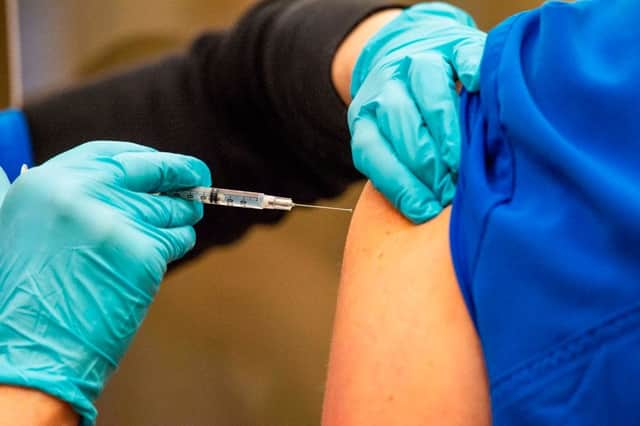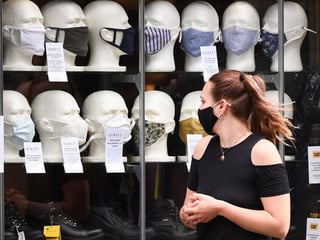This is how long you have to wait between the first and second dose of the Covid vaccine - and why there's a gap


As infection rates and hospital admissions continue to rise, the UK's health officials have decided to change tact on its rollout of Covid vaccines.
Both the approved Oxford / AstraZeneca and Pfizer / BioNtech vaccines require two doses, which were initially to be administered three weeks apart.
Advertisement
Hide AdAdvertisement
Hide AdBut the UK's decision makers have opted to delay giving the second dose of both vaccines, causing concern and confusion for many.
So what's the reasoning behind it?
What's the gap between the first and second vaccine dose?
Following the UK's approval of the Pfizer vaccine on 2 December, the initial plan was to give priority groups a second dose three weeks after the individual received their first.
Yet increasing infection rates, hospital admissions and new variants of the virus - including a more transmissible strain from South Africa - has prompted a change in thinking.
The Joint Committee on Vaccination and Immunisation (JCVI), an independent expert advisory committee, worked out that more people could get a first dose of the vaccine if the UK were to delay the administering of the second of up to 12 weeks.
Advertisement
Hide AdAdvertisement
Hide AdIt is hoped that more doses of vaccines will be available by then, while also offering more vulnerable people protection against the deadly virus.
Why is a second dose needed?
The second jab, which will now be administered within 12 weeks of the first, acts as a booster to strengthen the immune response and increase the length of protection.
The first Pfizer jab provides 91 percent protection against Covid, according to professor David Salisbury, who was in charge of immunisation at the Department of Health until 2013.
He said: “If you look at the New England Journal of Medicine paper about the Pfizer vaccine... you give one dose and you get 91 percent protection, you give two doses and you get 95 percent. So you are only gaining four per cent for giving the second dose.
Advertisement
Hide AdAdvertisement
Hide Ad“With the current circumstances, I would strongly urge that you should use as many first doses as you possibly can for risk groups and only after you have done all of that come back with second doses.”
The Pfizer jab provides 95 percent protection after the second dose.
The Oxford jab has proven to be 62 percent effective after two doses, with a small group of people receiving 90 percent protection when half a dose and a full dose is provided.
Why is there concern?
Volunteers in both the Oxford and Pfizer trials were given two doses each.
Advertisement
Hide AdAdvertisement
Hide AdThe impact of stretching out the doses hasn't been tested during the trials and neither has mixing up the doses, which could see one person receive a Pfizer vaccine followed by the Oxford vaccine.
The JCVI said the mixing of vaccines would only happen in "exceptional circumstances", such as supply and availability.
What has the WHO said?
Yet the World Health Organisation has warned against delaying the second dose of the vaccine.
Alejandro Cravioto, chairman of the WHO's Strategic Advisory Group of Experts on Immunisation (Sage), said the second dose should only be delayed in “exceptional circumstances”.
Advertisement
Hide AdAdvertisement
Hide AdHe said: “We deliberated and came out with the following recommendation: two doses of this [Pfizer] vaccine within 21-28 days.
“Sage made a provision for countries in exceptional circumstances of [Pfizer] vaccine supply constraints to delay the administration of the second dose for a few weeks in order to maximise the number of individuals benefiting from a first dose.”
And added: “I think we have to be a bit open to these types of decisions which countries have to make according to their own epidemiological situations.”
